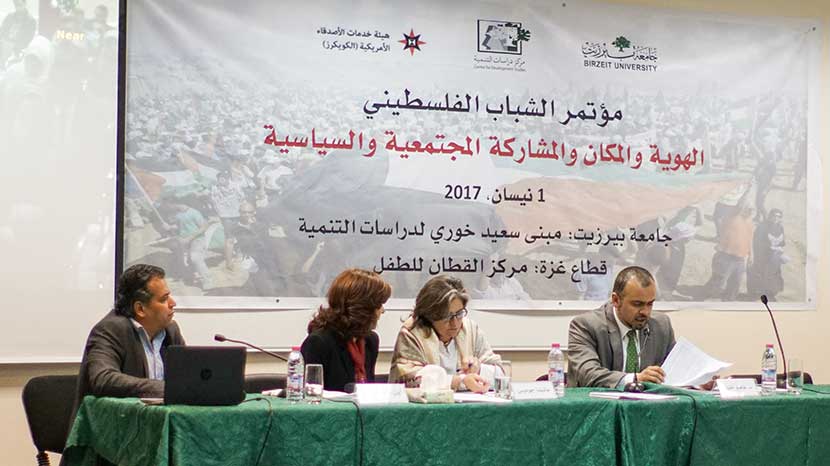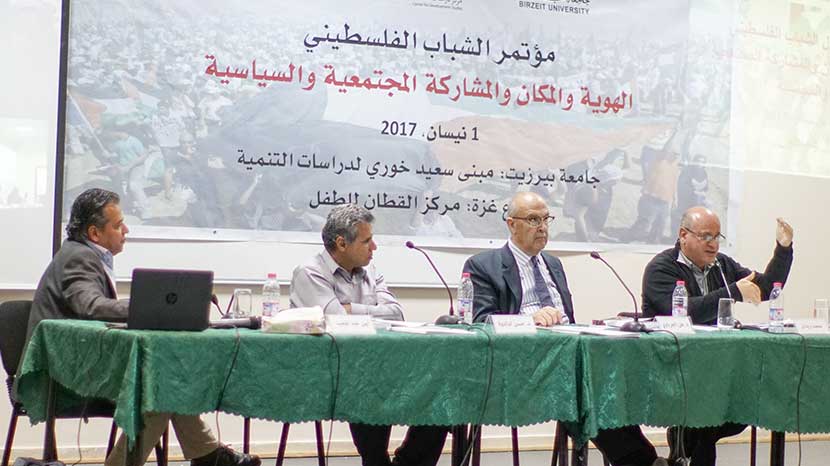Conference on Palestinian Youth addresses issues on identity and collective participation
Analytical papers on the effects of social fragmentation on the Palestinian identity were presented in the “Palestinian Youth Conference”, organized by the Center for Development Studies in Birzeit University on April 1, 2017, on identity, space and collective participation in the historical Palestine and the Palestinian refugee camps in Lebanon.
Based on a study done by the Center, in collaboration with American Friends Service Committee, the conference sessions aimed to identify the effects of social fragmentation, and impact of deterritorialization on the Palestinian identity under the socioeconomic and political cross-generational contexts.
The Vice President of Community Outreach at Birzeit University Asim Khalil reaffirmed the university’s fundamental goal to expand its community outreach mission through reaching out and connecting with the various sections of Palestinian society.
He pointed out that the conference aims to build an in-depth understanding of one of the controversial issues in the Palestinian community. “The conference outcomes offer a framework to a deep understanding to the colonization role in cracking the Palestinian society.”
The American Friends Service Committee Country Representative Matilde Gomis-Perez talked about the long-standing role of the Committee in Palestine since 1948. “The committee first arrived to Palestine at the end of 1948 when the UN requested its services to assist the Palestinian refugees. However, it was obvious later that prolonged direct relief contributes to the moral degeneration of the refugees and that it also hindered finding a real long-term solution to the Palestinian cause.”
She pointed out that the Committee’s partnership with the Center of Development Studies of Birzeit University aims to shed light into how Palestinians in the West Bank, Gaza, lands of 48 and Lebanon live under the geographical, political and sociological fragmentation. “This conference does not aim to give solutions for the Palestinian fragmentation but to offer the insights for the youth to be able to find the right means to overcome the current fragmentation that is threatening their identity.”
The Researcher and Coordinator at the Survey Unit in the Center Ayman Abdel Majeed talked about the outcomes of the study: “Identity, Space and Community Participation.” He pointed out that 70% of the Palestinian community sees that the political and sociological situation is deteriorating since the Oslo Occurred was signed. The majorities of the Palestinians agree that the national project collapsed under internal political relations and have no faith in the Palestinian political parties.
Despite the Palestinians’ Dire conditions and pessimistic views, the study showed, according to Abdel Majeed, that majority of the communities still feel safe and secure about the future of the next generations. Around 53% of the Palestinians think that we today are closer to liberation than ever.








